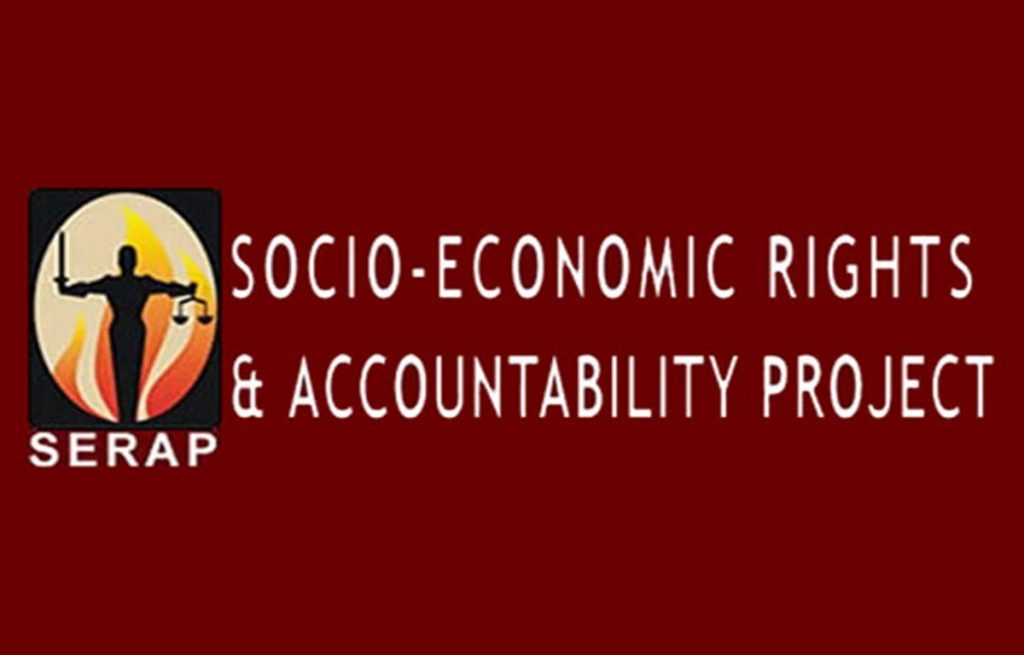Share!
The Social-Economic Rights and Accountability Project SERAP has asked the federal government and the Central Bank of Nigeria CBN to provide details of its spending on relief funds and private sector donations meant to provide socio-economic benefits to the poorest and most vulnerable people in the country during the lock-down in Abuja; Lagos and Ogun caused by the deadly coronavirus pandemic.
In two Freedom of Information FoI requests signed by its deputy director, Kolawole Oluwadare and sent to the Minister of Humanitarian Affairs, Disasters Management and Social Development, Sadia Umar-Farouk, and the CBN governor, Godwin Emefiele on Saturday April 4, the human right group demanded details of beneficiaries of any cash payments, cash transfers, food distribution and other benefits being provided by the federal government as stimulus package during the lock-down.
SERAP also asked the federal government to reveal ‘information on the details of implementation of the school feeding programme during the lock-down and closure of schools in several states where the programme is being implemented, including the number of children that have so far benefited from the programme and the names of the communities, since the lock-down and closure of schools, as well as the number of cooks engaged’.
It added that “Providing the information would help to address the concerns by many Nigerians regarding allegations of corruption and politicization in the distribution of benefits, improve public trust, and enhance the integrity of the entire processes and modes of distribution of reliefs/benefits to these Nigerians.”
According to the group, “Providing socio-economic benefits to the country’s poorest, especially at this time of COVID-19 crisis, is a matter of human rights, not charity. It is also implicit in Nigerians’ right to freely use their natural wealth and resources, which ought to be spent for the public good. Ensuring that relief funds and donations are used to provide much-needed benefits to beneficiaries is critical to keeping people alive, and addressing vulnerabilities and inequalities in the country.”
Adding that they are “seriously concerned that millions of the country’s poorest and most vulnerable people have not benefited from the announced palliatives, donations, reported cash payments, cash transfers and other benefits.”
SERAP therefore urged the government to begin electronic cash transfers to all beneficiaries through individuals’ Bank Verification Numbers (BVNs), already available through the banks, rather than making physical cash payments to the country’s poorest and most vulnerable people ‘which may be diverted and in any case, may not be what certain individuals and families may need.’
It said doing so would be “cost-effective at this time of crisis, provide immediate and significant benefits, as well as give individuals and families the freedom to spend the money on goods and services that best meet their particular needs.”
“We urge you to refer to the Independent Corrupt Practices and Other Related Offences Commission (ICPC) and Economic and Financial Crimes Commission (EFCC) for prompt, thorough and transparent investigations of allegations of corruption in the distribution of relief funds and donations for COVID-19 and the politicization of the process for the distribution funds, as well as to urge the anti-corruption bodies to effectively prosecute any credible cases of corruption.” SERAP added.
The human rights group however warned that if they do not get a response after seven days of the receipt and/or publication of the FoI requests, “the Registered Trustees of SERAP shall take all appropriate legal actions under the Freedom of Information Act”, to compel the government to comply with the requests.
Related posts:
- Nigeria To Get Relief As IMF Asks Bilateral Creditors To Suspend Debt Payments Over Coronavirus
- Access Bank To Support COVID-19 Fight With 1000-bed Centres
- Finance Minister Assures Of Uninterrupted Online Transactions And Use Of ATMs During Lock Down
- UPDATED:Finally NERC Suspends Proposed Electricity Tariff Increase Over Coronavirus
